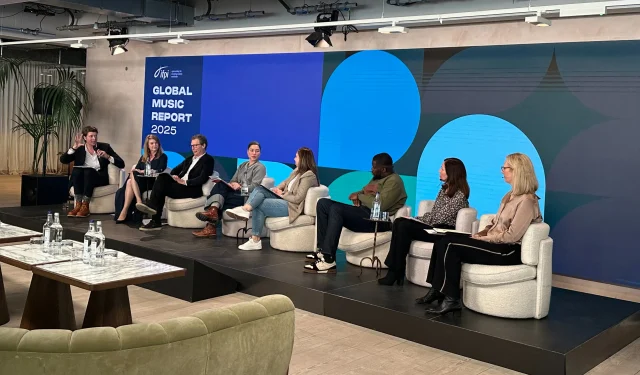IFPI Calls for Protection of Music and Artistry in the Age of AI
On Wednesday, the International Federation of the Phonographic Industry (IFPI) urged policymakers to prioritize the protection of music and artistry. CEO Victoria Oakley emphasized the need to leverage artificial intelligence (AI) to enhance human creativity rather than replace it. “We must harness the potential of AI to support and amplify human creativity, not to replace it,” she stated.
Concerns Over AI and Copyright in the Music Industry
During the launch event for the Global Music Report, Oakley elaborated on the implications of AI for the music industry. While record companies recognize AI’s capacity to foster creative opportunities and improve fan engagement, she cautioned against the unauthorized use of copyrighted music for training generative AI models, labeling it a significant threat to artistry.
Global Music Report Highlights Industry Growth
The event, held in London, revealed that total trade revenue for the music industry grew by 4.8% to reach $29.6 billion in 2024, marking the tenth consecutive year of growth. This surge was primarily driven by a notable 9.5% increase in subscription streaming revenue, even amidst a competitive marketplace.
The Role of Generative AI: Opportunities and Challenges
In her address, Oakley acknowledged the dual-edged nature of generative AI. “At its best, generative AI can be a really powerful tool for artists and consumers alike,” she noted, highlighting existing industry partnerships formed under the right conditions. However, she remained cautious about its potential for exacerbating piracy in the music sector. Oakley reaffirmed the importance of implementing copyright regulations that have successfully fostered innovation in the past, ensuring they are consistently applied in the evolving AI landscape.
The Need for an AI Framework
Oakley concluded with a call to action, stressing that the music industry and policymakers must collaborate to establish an effective framework for AI, balancing the interests of both creative and technology enterprises.
Insights from Industry Leaders
Executives from across the industry participated in a panel discussion focused on the benefits and risks associated with AI. Cassandra Strauss, Senior Director of Strategic Technology and Global Digital Technology at Universal Music Group (UMG), shared insights on the company’s efforts to integrate AI into marketing strategies and its recent launch of the Responsible AI Initiative. “We are finding groundbreaking partnerships with the private sector in the AI space,” she explained, particularly emphasizing collaborations with platforms like YouTube and SoundLabs to enhance the artist experience.
However, UMG has made it clear that it will not engage with generative AI firms that utilize large quantities of copyrighted material without proper licensing, denouncing the practice as exploitative. Instead, the company aims to create business models that benefit both artists and technology developers.
In a similar vein, Dennis Kooker, President of Global Digital Business at Sony Music Entertainment, expressed optimism about AI’s prospects. He pointed out that music, as an emotionally resonant product enjoyed globally, is often one of the first sectors impacted by technological advancements. Kooker emphasized that, “If done right, we should create a whole new way of listening and engaging with music in this next chapter.”
Despite his enthusiasm, Kooker cautioned that realizing this vision will require substantial time, dedication, and experimentation. He concluded with a hopeful assertion: “History says we will find the next great format. And with that, I think, there will be a very exciting future.”
For more insights on this topic, visit the Hollywood Reporter.


